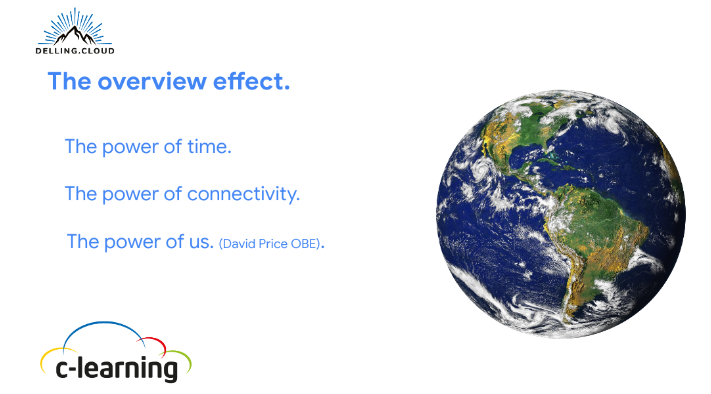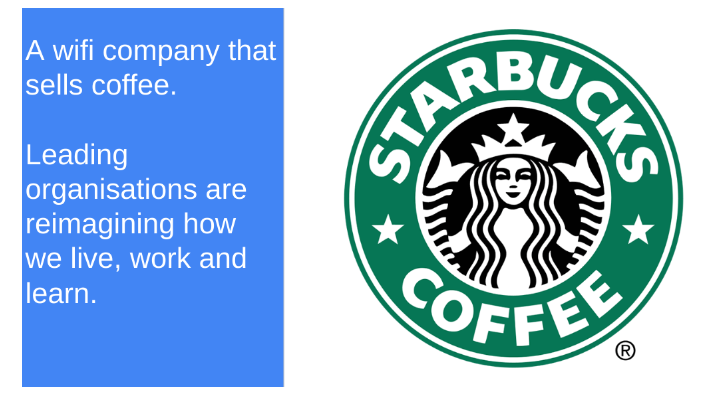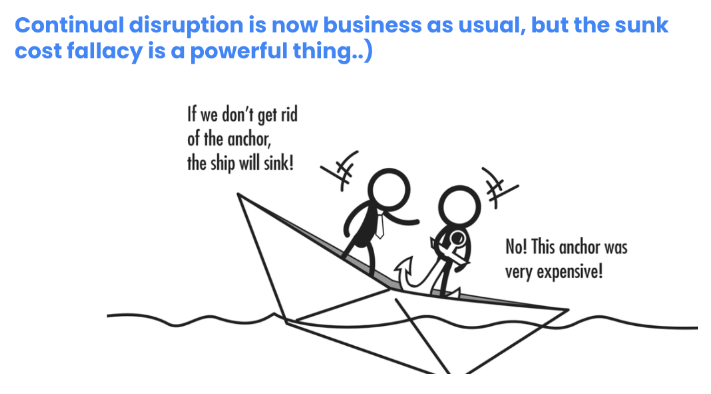What’s Different Now? Are We Educating People To Thrive in the Never Normal?

Forbes estimates that by 2025 up to 70% of the workforce could be operating in a location independent way. The covid 19 global pandemic has played a large part in this, fundamentally changing the way we live, work and learn in many cases forever. Data from LinkedIn in their ‘Emerging Jobs’ report for the UK shows that of the top emerging jobs, most are location independent, enabled by the ever wider fusion of technology into our daily lives.

The average broadband speed in the UK in 2021 was 79.1mbps, a speed that is broadly 1000x faster than 1998. Even in the rural village where I live in Staffordshire I have 1 gigabyte per second speed which is quite remarkable, and it’s a sign of how our world is changing and how digital disruption is now business as usual. Looking deeper at the LinkedIn data, not only are most of the top emergent jobs location independent but there are also, as of early 2022, over 15 million active job vacancies on the platform from the more than 58 million companies on LinkedIn. My question to educators is this. Do your students know this? Do they have a LinkedIn profile and do they know how to use it to leverage opportunities like the more than 3 million people who find a new job on LinkedIn each year? (More than 6 a minute). Despite being the oldest social media platform having launched back in 2003 unlike many other platforms, LinkedIn continues to thrive and grow reporting an increase in engagement of more than 22% in 2022, and as the marketplace for the world’s professionals and decision makers my contention is that any student in a college or university needs to know how to use it as work isn’t what it used to be. In 2022 alone the increase in people getting hired via LinkedIn was 88% and 57% of job seekers now use the platform. Despite this I still listen to many students, and career advisers, who seem to be unaware of the scale of the opportunity it provides.

When I was first entering the job market I needed to travel to the employers location. To put it another way, people used to move to find jobs but now jobs move to find people. In the technology sector for example, the companies I work with are built with teams based all over the world delivering projects that are often in countries they may not be located in. This way of working may not be for everyone, but a number of clear trends appear to be emerging following the covid 19 pandemic in terms of changes to how we live. NASA astronauts who have been into space often return talking about how the experience has changed their perspectives forever. This is sometimes referred to as ‘the overview effect’ and my contention is that the pandemic created a similar effect without the need to go into space.
As I listen to a number of friends who work in recruitment a few clear themes emerge that reflect many of the drivers that I suspect underpins the ‘the great resignation’ where people are re-focusing and re-prioritising how they wish to live, and it falls into three priority areas.
- The power of time. What we do with the time we have.
- The power of connectivity. The internet is enabling unprecedented productivity and collaboration.
- The power of us (David Price OBE). The power of people realising how a bit of agency and autonomy over what they do can power potential like never before, especially when they connect to others with a common shared purpose.

These changing attitudes are driving fundamental changes to the way that businesses operate and future graduates need to be prepared for it. Digital disruption will only accelerate so a sobering thought is that the pace of change right now is as slow as it will ever be. As business models continue to adapt and evolve the reality of the workplace for many will be a new ‘never normal’, where it’s always business as unusual.
To thrive in this future environment graduates will need to be equipped with the right characteristics and behaviours including an always learning mindset, creativity, critical thinking, sound judgement and decision making, cognitive flexibility and outstanding interpersonal skills.
Right now, too many people in too many organisations do not have these qualities leading to a common problem, the ‘we’ve always done it this way’ syndrome. This has always been a problem for organisations but in the digital age, the sunk cost fallacy (we’ve spent a lot on this building so come back and use it because… Well we’ve spent a lot on this building) will sink an organisation fast.

High street stores like HMV, Maplin, Toys R US and Blockbuster all had the opportunity to become Spotify, Amazon, Ebay or Netflix (in fact Blockbuster had the chance to buy Netflix for $50 million in 2000 but the sunk cost fallacy sunk them). It’s no different in education. We’re not preparing people for jobs as they were, and it’s our collective responsibility (with my MAT Director and University Board member hats on) to equip students with the skills, attitudes and behaviours to make the most of this digitally connected world in a way aligned to their future, not our shared past.
In thinking about how we might best prepare our students to thrive in the never normal, I’d suggest focusing on things that a robot can’t do would be a good start because if it can be automated it probably will. I recommend this approach because computers have memory but no imagination. By equipping people to focus on the higher level human abilities such as creativity we will be powering the potential of the next generation to thrive in leading happy, healthy and productive lives.
Although right now these can seem like difficult times with political and economic bad news dominating the headlines, for those who look beyond the noise we live in the most exciting time in history for future graduates who now have more than 15 million job opportunities available to them each day right from where they are. Many others will start new enterprises of their own with colleagues in many localities. In this context I’d subscribe to the words of Alphabet and Google CEO Sundar Pichai who was speaking to a group of students when he said “Be open minded, be impatient, be hopeful’. Those characteristics will serve students well in the never normal.
By Jamie Smith, Chairman of C-Learning
Jamie Smith is Chairman of C-Learning, a Google Workspace for Education Premier Partner and transformation specialist, part of Delling Cloud, serving several thousand clients in more than 35 countries across Europe, the Middle East, Africa and wider. Email [email protected] Follow us on Twitter @C_learning.net or www.c-learning.net











Responses